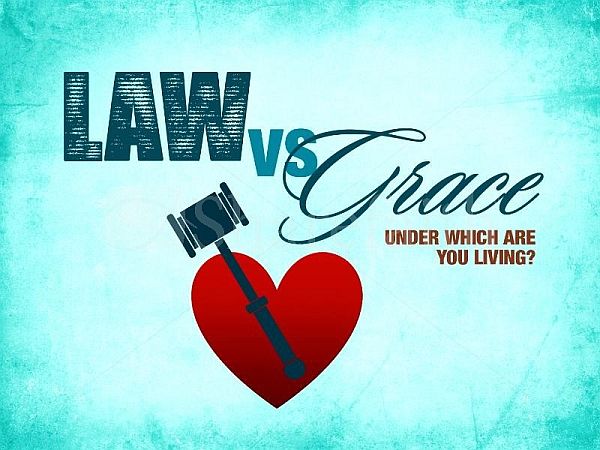Session 13 - Galatians
Author
Paul wrote to the churches in southern Galatia after having a hand in planting them on his first (or third - there are variable datings) missionary journey.
Date of Composition
(For our purposes), about 55, following the Jerusalem Council which took place in 50.

Location, Purpose and Audience
The Galatian Christians fell away quickly from the gospel of grace Paul had preached to them. They also made clear their disloyalty to Paul's authority as an apostle.
False teachers had followed Paul on his journeys and had corrupted the Gospel, pressuring the Christians in Galatia (a region in the Roman Empire) to adopt Judaism (if they were Gentiles) and follow the Law of Moses in order to be perfect before God. Their message was the exact opposite of what Paul had taught them: that salvation comes solely through Christ. (Most Gentile believers would have considered such issues quite alien.) In other words, they had to become Jewish (including being circumcised - for males - and obeying the other requirements of the Law) in order to be Christians.
This idea largely stemmed from the idea that Christianity was a sect of Judaism, which is understandable as to its origins, but not as to its spread to the Gentile world. In doing so, the Judaisers (Christians of strict Jewish origins who remained committed to their heritage and linked it compulsorily to the Gospel, OR Gentiles who were proselytized as Jews, came to faith in Christ but did not wish to abandon the terms of their earlier conversion) were attempting to prove that Paul was not preaching a complete message because he had not tied Christian faith to its Jewish roots.
These false teachers also claimed that Paul was not an apostle (or was an inferior apostle at best). He was a latecomer, who had not known Jesus Christ personally but received his understanding of Christianity from the wrong sources and only gave them a partial version of the Gospel. This upset the church and caused them to shift allegiance and change the basis of their faith. So Paul writes, to bring them back to the truth.
Paul declares that they have been "bewitched" (3:1) by the Judaisers. After all, they had originally received the Spirit without observing the works of the Law (3:1-5).
The Law by itself was inadequate - the Jewish people had been living under it since the days of Moses. However, no one could keep its tough requirements. Everyone was a sinner. Paul wanted them to know that no religious codes or ceremonies were able to save them. God therefore sent Jesus. Jesus was born and lived the Law, died for our sins, and rose again - He fulfilled the Law.
The new teachers who came to the Galatians completely disregard and disrespect God's grace, Christ's sacrifice, and the Holy Spirit's work. That's why Paul is so upset. This is the only letter in which he does not have something for which to be thankful. He regards their change of belief and allegiance as abandoning the Christian faith.
Paul defends his apostolic calling:
"This letter is from Paul, an apostle. I was not appointed by any group of people or any human authority, but by Jesus Christ himself and by God the Father, who raised Jesus from the dead." (1:1)
"I received my message from no human source, and no one taught me. Instead, I received it by direct revelation from Jesus Christ." (1:12)
Paul also refers to his dramatic conversion and out-of-left-field trajectory as a new Christian, his early years as a Christian (supplemented by material in Acts), the fact that he had checked out his credo with the apostles in Jerusalem, and that he bore marks of suffering for Christ in his body. Paul cites the gentlemen's agreement of the leadership in Jerusalem for him to be the "apostle to the Gentiles" (2:7-10). This gave him the right to challenge Peter when he came up from Jerusalem to Antioch and (along with Paul's friend Barnabas) fell under the influence of the Judaisers for a short period, during which he separated from the Gentile converts, who were historically regarded as unclean under the Law (2:11-21). Peter should have remembered that a new relationship with the Gentiles was made possible in Christ (cf Acts 10:1-11:18).

Paul is also disappointed that, whereas the Galatian believers initially received him as God's agent (4:12-20), with God's message, now they are alienated because they are trying to gain God's favour by works.
"Obviously, I'm not trying to win the approval of people, but of God. If pleasing people were my goal, I would not be Christ's servant." (1:10).
Question? What is the role of apostolic ministry today? Jesus has not stopped giving ministry "gifts" to the church. And, do we insist people become like us to be Christians?
Literary Style and Structure
Galatians explains our new relationship with God. We're freed from sin. We're freed from the Law. We're adopted as children of God. We're counted as spiritual children of Abraham, whether we're Jews or non-Jews. And we're empowered by the Holy Spirit to do good works, something sin prevented us from doing and the Law never empowered us to do. Paul uses doctrine, Scripture, and allegory to show how Christianity is greater than the Law. The true purpose of the Law was to point to Jesus Christ; the gospel does not make any difference between Jews, Greeks, free men, slaves, men or women.
- The gospel under attack in Galatia (1:1-10)
- History of the Law vs. grace debate (1:11-2:21)
- Salvation via faith vs. salvation via works (Chapter3)
- Slavery vs. sons and heirs of God (Chapter 4)
- The sinful flesh vs. the Holy Spirit (Chapter5)
- How to do good in Christian community (Chapter 6)
Key Issues
Law or Grace
As we have already seen, the Gospels provide a stark contrast of the ineffectiveness of trying to keep the Law, compared with the liberation that comes from God's grace. Two further books in the New Testament deal with controversies over Law and grace. One is James, written from a Jewish standpoint; the other is Galatians, from someone appointed as an "apostle to the Gentiles". The two are not in conflict, they are complementary.
"Christ has rescued us from the curse pronounced by the Law. When he was hung on the cross, he took upon himself the curse for our wrongdoing. For it is written in the Scriptures, 'Cursed is everyone who is hung on a tree'*. Through Christ Jesus, God has blessed the Gentiles with the same blessing he promised to Abraham, so that we who are believers might receive the promised Holy Spirit through faith. (3:13, 14) *Deut 21:23
Christians are no longer under the Law, but are saved by grace (= God's Riches At Christ's Expense) through faith in Jesus. Galatians shows clearly how Christianity cannot be mingled with Jewish laws and circumcision. The Law was incapable of saving us (2:16, 17); if we fail to fulfil it completely, but depend on it, we are under sentence of spiritual death. This is where the Gospel comes in: faith in Christ alone is enough for salvation. The bonus is that, if we have Christian love, we will live in such a way that we will not breach the Law (5:13), but end up serving one another out of that love anyway.

The Law was not at fault, but if one relied on it, only 100% compliance (ie sinless, all the time) would work; in fact, it was the perfect basis for ascribing guilt; when we look at our lives in the light of the Law we see that we are sinners; Law reveals sin, however, it does not/cannot remove it. The Law was given to guide, like an usher, and instruct us, like a school master, whose ultimate purpose was to bring us to Christ (2:20, 21; 3:2, 19-21, 24).
Pressure on the Galatians to submit to the Judaisers was strong. Paul says that they are twisting the truth about Christ (1:7); he encourages the believers to "make sure that you stay free, and don't get tied up again in slavery to the Law" (5:1). Those who teach otherwise are false believers (2:4).
Paul emphasizes that the Galatians received the Holy Spirit only by believing in the message they had heard about Christ, not by obeying the Law of Moses (Gal 3:2, 3, 5); the Holy Spirit in our lives is evidence of belonging to the people of God, not circumcision, keeping food Laws, Sabbath observance, or any other requirements of the old Law. What the new teachers brought was false. There are false teachers today too.

Sidebar: How do we recognize false teachings/cults?
Most cults:
- have a different Jesus; a different Gospel; and a different Holy Spirit (2 Corinthians 11:4; I John 4:3)
- are comprised of people who "do not receive the love of the truth, so as to be saved", so they go with new ideas or influences - 2 Thessalonians 2:10
- deny the nature of God as expressed in the Bible - Jude 4
- reject the atonement as sufficient for salvation - 2 Peter 2:1
- deny the power of godliness - 2 Timothy 3: I-5
- reject good doctrine; replace it with false stories/processes — 2 Timothy 4:3-4
- reject spiritual authority - Jude 8
- believe they are the only true church; discourage dissent; are critical of other churches and Christian leaders; use manipulation to keep people in their ranks, including threats of divine punishment, loss of reward, or being shunned
Paul uses the example of Abraham, who was justified by God through his faith, long before the Law was given through Moses. The spiritual heirs of Abraham are all those (including Gentiles), who trust in Christ as the sole basis for their justification.
He also draws a comparison between Abraham's two sons: Ishmael, as a child of Hagar, the slave woman, and Isaac, the child of the free woman Hagar. It may have shocked traditional Jews that Paul equated reliance on the Law with Hagar, excluding those who followed the Law for the promises of freedom. Reliance on the Law actually shut them out from God's promises.
"But when the right time came, God sent his Son, born of a woman, subject to the Law. God sent him to buy freedom for us who were slaves to the Law, so that he could adopt us as his very own children. And because we are his children, God has sent the Spirit of his Son into our hearts, prompting us to call out, 'Abba, Father'. Now you are no longer a slave but God's own child. And since you are his child, God has made you his heir. (4:4-7)
Christ Crucified
This is the central theme of the Gospel and Paul's preaching (3:1).
The Power of the Cross of Christ
- to deliver us from sin - 1:4; 2:21; 3:22
- to deliver us from the curse of the Law - 3:13
- to deliver us from the old self-life - 2:20; 5:24
- to deliver us from the world - 6:14
"My old self has been crucified with Christ. It is no longer I who live, but Christ lives in me. So I live in this earthly body by trusting in the Son of God, who loved me and gave himself for me. (2:20)
"As for me, may I never boast about anything except the cross of our Lord Jesus Christ. Because of that cross, my interest in this world has been crucified, and the world's interest in me has also died." (6:14).
Many Races, One Church - children of God through faith in Christ
"For you are all children of God through faith in Christ Jesus. And all who have been united with Christ in baptism have put on Christ, like putting on new clothes. There is no longer Jew or Gentile, slave or free, male and female. For you are all one in Christ Jesus. And now that you belong to Christ, you are the true children of Abraham. You are his heirs, and God's promise to Abraham belongs to you." (3:26-29).
Only Christianity offers this relationship. Paul is passionate and uncompromising in his calling, ministry and teaching about Jews and Gentiles becoming one in Christ. Likewise, class and gender differences. What Joel prophesied (2:28); was confirmed on the Day of Pentecost and the conversion of Cornelius (Ac 2 and 10) under the New Covenant and was the basis of Paul's calling to proclaim the message to all the nations. (Ac 9:15 and Ac 13).
Dealing with New Teachings
Paul is also uncompromising about those who would bring a new message, different to one he brought when he evangelized them:
Let God's curse fall on anyone, including us or even an angel from heaven, who preaches a different kind of Good News than the one we preached to you. I say again what we have said before: If anyone preaches any other Good News than the one you welcomed, let that person be cursed." (1:8, 9).
Standing Fast in our Liberty in Christ
We are to "stand fast" in our liberty in Christ (5:1). This means avoiding being caught in either legalism (reliance on strict compliance with the Law) or sin. When people "stand fast" in traditions, opinions and past experiences, they lose their liberty. Some end up bound by legalism (straightjacketed by rules, regulations and conventions, "we have always done it this way"); others walk away from faith in Christ disillusioned with people or processes, or find they do not have strength in themselves to go on - we will never find strength in ourselves; that's why we need Christ and the power of the Holy Spirit.
Being Led by the Spirit
As Christians we need to allow the Holy Spirit to lead us - Galatians 5:16, 25. If we do this we will not be continually falling into sin (the "works of the flesh", 5:19-21 provide details of 17 areas in which sin can rule in our lives). To be led by the Holy Spirit means listening and being obedient to Him. Problems arise when we try to carry out in our own strength what only the Holy Spirit can do - Galatians 3:3.
The Fruit of the Spirit
"The Holy Spirit produces this kind of fruit in our lives: love, joy, peace, patience, kindness, goodness, faithfulness, gentleness, and self-control. There is no law against these things." (5:22, 23). The Fruit of the Spirit are produced in our lives as we surrender to His Lordship
"Jesus said, 'A tree is recognized by its fruit' " (Matthew 12:33)
Two Paradigms - Two Types of Fruit
| The Fruit of the Sinful Nature |
|---|
Sexual immorality
Impurity
Lustful pleasures
Idolatry
Sorcery
Idolatry
Witchcraft
Hostility
Quarrelling
Jealousy
| 
|
Outbursts of anger
Selfish ambition,
Dissension,
Division
Envy
Drunkenness
Wild parties, and
Other sins like these
|
| The Fruit of the Spirit |
|---|
Love
Joy
Peace
Patience
Kindness
| 
|
Goodness
Faithfulness
Gentleness
Self-control
|
"...live by the Spirit, and you will not gratify the desires of the sinful nature .... If we live by the Spirit, let us keep in step with the Spirit." (Galatians 5:16, 17, 25)
Our sanctification (ie being "separated to God") is both:
- positional (based on the finished work of Christ); and
- progressive, or experiential (the Holy Spirit translating that work into our daily reality).
Chapter 6 encourages us to look out for (and help) weaker Christian neighbours (6:1-6, 9) and describes the inexorable law of sowing and reaping (6:7, 8).
Summary: who are the people of God?
Not those who rely on the Law of Moses and keep the Old Covenant; not those who appoint themselves and boast in their own goodness and authority in the church; nor those who depend on their own strength:
"It doesn't matter whether we have been circumcised or not. What counts is whether we have been transformed into a new creation. May God's peace and mercy be upon all who live by this principle; they are the new people of God. (6:15, 16)
For Paul, there is now a law that is higher than any other: the Law of Christ (6:2); He fulfills God's righteous requirements and we are save only by faith in Him. We are the new people of God.
For Reflection:
- Paul knew his calling in God; are you aware of the giftings God has given you?
- We must seek to please God, not people. If serving people means you cannot be a true servant of Christ, are there areas you need to bring back under the Holy Spirit's direction and authority?
- Are the fruit of the Spirit evident in your life?
- Do you rely on your own efforts and achievements to please God?
- "It is for freedom that Christ has set us free" (5:1). Are there things that you allow in our life that compromise the freedom you have in Christ?
- "Walk in the Spirit" (5:6). What does that mean in your personal life?
- Are there attitudes in your life that come between you and accepting and unconditionally loving other (different) believers? What needs to change?

A Comparison
- Secularism ("Indifference to, or rejection or exclusion of, religion and religious considerations" - Merriam Webster Dictionary). The church in the West is declining in a secular environment (many Christians are highjacked by secular thinking, often because they do not know what they really believe, or why). But when people give up on church, they don't give up on spirituality. Instead, they shop around for alternatives. They walk away from rigid tradition & shallow spirituality because tradition alone doesn't work beyond the placebo level, but they remain spiritual beings, made in the image of God, with spiritual needs. What the world needs, and Christians can be channels to deliver, is the transformative power of God.
- Legalism - Living by "law" (as distinct from grace) for salvation. "But some believers who belonged to the sect of the Pharisees stood up and said, 'It is necessary for them to be circumcised and ordered to keep the law of Moses.'" (Acts 5:5) In churches and Christians where legalism predominates spiritual passion is invariably below average. The emphasis is on compliance with rules, not relationship with Living God. Rules are not the problem; there is a way we should live; but rules should never become the drivers for their own sake. Combatting legalism was Paul's theme in Galatians (likewise in Colossians 2:20-23 and Romans 14). Christ has come to set us free from dead legalism; the Holy Spirit enables us to fulfil all of God's laws through the principles of loving God and loving people (the two greatest commandments; Matthew 22:37-40) and making us like Jesus.
- Antinomianism - Latin anti = against, Greek nomos = law. Belief that, under the Gospel of grace the Biblical or moral law are not an obligation because faith alone saves. "We are not under law, but under grace" (Romans 6:15, cf Matthew 10:4). Antinomianism as a theology leads to "cheap grace" and an excuse to keep sinning. "What shall we say, then? Shall we go on sinning so that grace may increase? By no means! We are those who have died to sin; how can we live in it any longer?" (Romans 6:1, 2). Christians are not bound by "laws", but by a higher spiritual law, which is geared at holiness - this is one of the underlying messages of Romans.
Further reading:
Keller, T. (2013), Galatians for You, The Good Book Company, UK






